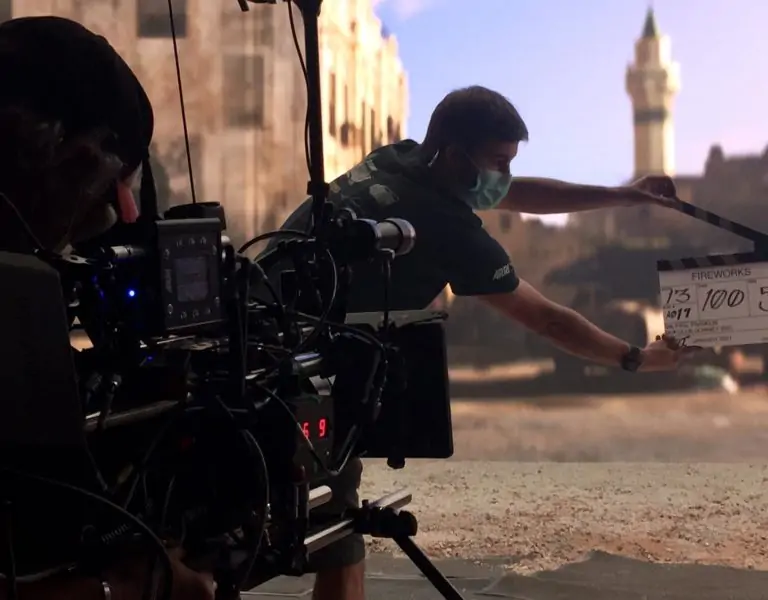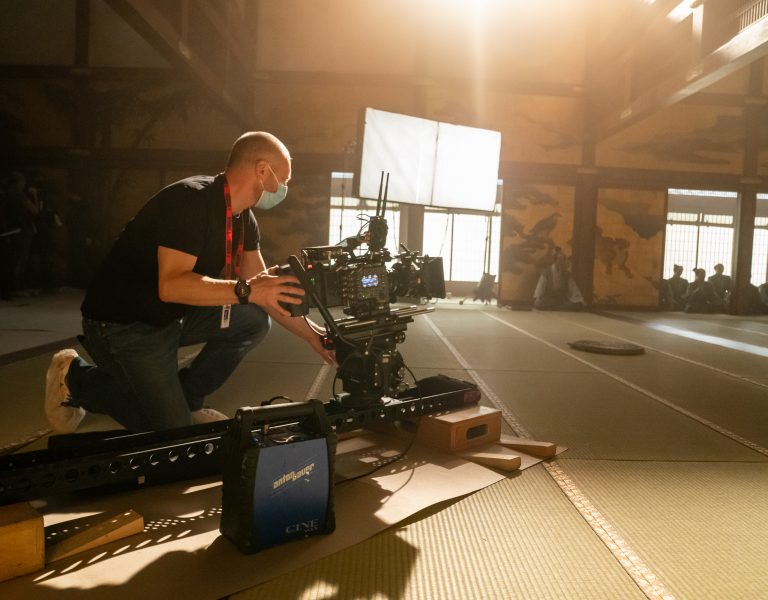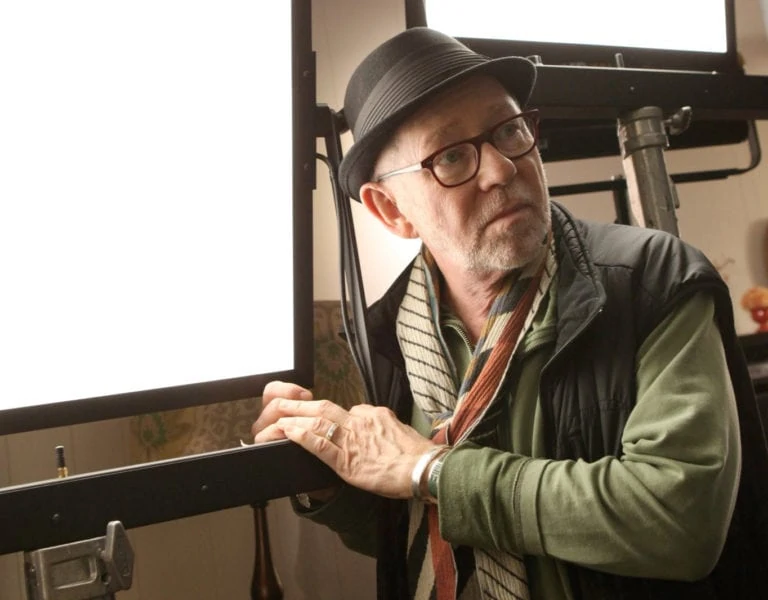GBCT Chair Tim Potter reflects on life at the guild in the wake of Dee Edwards’ passing and continuing her legacy of fostering budding talents.
Unaccustomed as I am to office work, the last two months have been a steep learning curve. Dee’s passing has left a great hole in the centre of the guild. Until we can engage new people to man the office, organise the training and do all the myriad of other things that Dee managed to fit in to the job, the lot has fallen to me to run things. Jumping in at the deep end is never wise but it was absolutely necessary.
Dee always felt that the most important thing for an organisation like the Guild was to be contactable at all times. A human voice that was reliably there. Someone who could listen and discuss everything from what is happening to the direst of emergencies. I can feel her eyes drilling into me from the beyond because I have done something she would not have approved of. I have introduced an answering machine to the office. It will go as soon as we have a more permanent presence.
Her shoes are big ones to fill, but we must think what sort of administration we would want for the future of the guild. There are the obvious day-to-day workings of any company. Whoever takes us on will need to not mind the drudgery of an office but also have the flare to initiate training courses and press forward with our patrons. When we were last in the market for an administrative assistant, Dee drew up an eye-watering list of duties and abilities that would scare off most applicants.
We have been ably served by those who have kept the office going, particularly over the times of COVID. It was my feeling that it was important for the office to remain available to all our members during that crisis. In those days there was a need for the Guild to carry out its pastoral duties to its members who might have found themselves in hardship. This meant that staff were not furloughed at a time when we could not gain the usual extra income from running training courses and our other activities. Even though we lived a bit beyond our means for that time, it was worth it. Partly it was what the guild was set up to do.
One of the most difficult and protracted operations has been the transfer of the Guild’s banking activities. Our bank has some of the most labyrinthine security procedures. How many times do you want to see my passport? It was imperative to regain control so that the office could continue to pay the usual subscriptions to services that enable us to function. This is gradually coming under control.
The selection process for the Guild Trainees for 2023/4 was well under way before Christmas. More than 700 applicants had been whittled down to a longlist of over 70, and their interviews had produced a shortlist of 16. The selection/training course was to be held in early January. This was postponed to mid-March, so is now back on track.
It was vital to show our presence at the BSC Expo, to let the world know that the GBCT is open for business and will continue to be the force that it is in our industry. Many members dropped by the stand, which was in a very advantageous position by the entrance way. I would encourage anyone who is in the Panavision Building to visit the office. The jar of Jelly Babies will be there to greet you.
–
‘Tis the (awards) season
This time of year brings the plethora of yearly film awards such as BAFTA and AMPAS Oscar Awards. At the time of writing, the BAFTA and SAG Actors Awards have happened, and the Academy Awards currently are being finalised. Some people have said to me that most of the awards are a bit long in the tooth and self-congratulatory, and they need to be refreshed in some way, and they are given a high priority in terms of television broadcast time.
If you are unaware of the procedure, BAFTA and AMPAS members are all working professionals within their specialist areas of cinematography, directing, screenwriting etc. There is a strict entry procedure, and the numbers are capped, so there are times when no new admissions are accepted. All members take the role of voting very seriously and are passionate about their valuable role in the process.
To bust a few myths about awards voting, it’s not a case of hundreds of members meeting a in a big room and the merits of each film thrashed out until a decision is made. No. Each member is unique, and the films are watched at home on domestic TVs or computers, a laptop or office machine. They are not to be shared or copied in any way (I would think this is virtually impossible to do anyway). If it is lost or is found to be copied in some way, it can be traced back to an individual and they are then normally ejected from the membership of the organisation.
Voting members are invited to attend special screenings, often with cast members and writers, directors and other key production team in attendance for a Q&A session after the screening. These are very often pre-public release, so security is paramount to ensure no details or images get seen by the regular cinema going audience before the carefully timed and planned marketing takes place.
This clearly takes a lot of effort and organisation and cannot be achieved for every production, so there are other ways of ensuring the films are viewed so they can be considered for voting. There used to be different ways of distribution including the physical pressing of DVDs sent to each member, and even specially encrypted DVDs that would only play on a specially supplied DVD player. That didn’t last very long due to technical issues making some discs unplayable.
Now it is achieved by viewing the films through a special streaming portal via a computer or smart TV, or by the conventional route utilising screenings. On paper the idea of streaming films direct to the screen is perfect. It’s a relatively lower cost, the distributor can track what has been watched more readily, and there are little in the way of distribution costs. The weak point in this is the level of technology each member personally has available so they can watch and listen to the productions in the best quality possible. This not the same as a cinema showing or a DVD, as a smart TV is needed to link up, or an Amazon stick is required. Not all films are able to be played, as some buffer and this does nothing for helping the viewing experience.
The next issue is the sheer amount of films, as this can be in excess of 250 to 300+ each year! If each film is, say, 90 minutes (that’s very conservative as many are now 180 minutes duration) then that’s 450 hours of viewing for 300 films! That’s 11 full weeks of doing nothing other than watching films. Almost three full months! Clearly that’s not remotely possible for anybody, so some pre-selections were consciously made. This was not ideal, fair, or indicative of the wealth of talent out there who may be starting out.
Given a choice, we would all rather watch a film with good credentials, so there was a tendency to pick and watch a few favourites. (This year it could be Everything Everywhere All At Once, All Quiet on the Western Front, Avatar, Empire of Light, Top Gun, Elvis etc.) Or it could be a favourite actor such as Will Smith, Tom Cruise, Olivia Coleman etc. This tended to leave out smaller or less well-known films and actors as they hadn’t got the star power actor, director or cinematographer. Even with a great cast, cinematographer and director this doesn’t always guarantee a great film, as I know from some of the films I have watched over the years!
So now there are a core selection of varied films that each voting member ideally should watch, and then others on top as well. This makes it more manageable for the voter and fairer to all. It doesn’t stop the issues of buffering or non-playing platforms, but ensures all the films are watched by a cross section of voters, so this gets through the preliminary selection. If the film misses this selection, it is out. There are many categories of course, so it can be voting into the next round for screenplay, and not voted for best film, for example.
The voting for BAFTA and the Academy Awards started at the end of December and there are several rounds that carry on into January until the week before the awards ceremony. There is always a wild flurry of movie releases in December and this compounds the issues I mentioned above. If they were released throughout the year that would make it more manageable, then again not all the films would be made by then!
Some films just get finished before the end of the year cut-off, of course, and are then entrenched in post-production for months for a summer 2023 release, as an example. When the awards ceremonies arrive, there may be several films you have not even heard of, as they haven’t been released or marketed yet. So, when the awards ceremonies are all completed you will understand how the results were formed, and why you may have never even heard of the films that won before the ceremony was shown.









